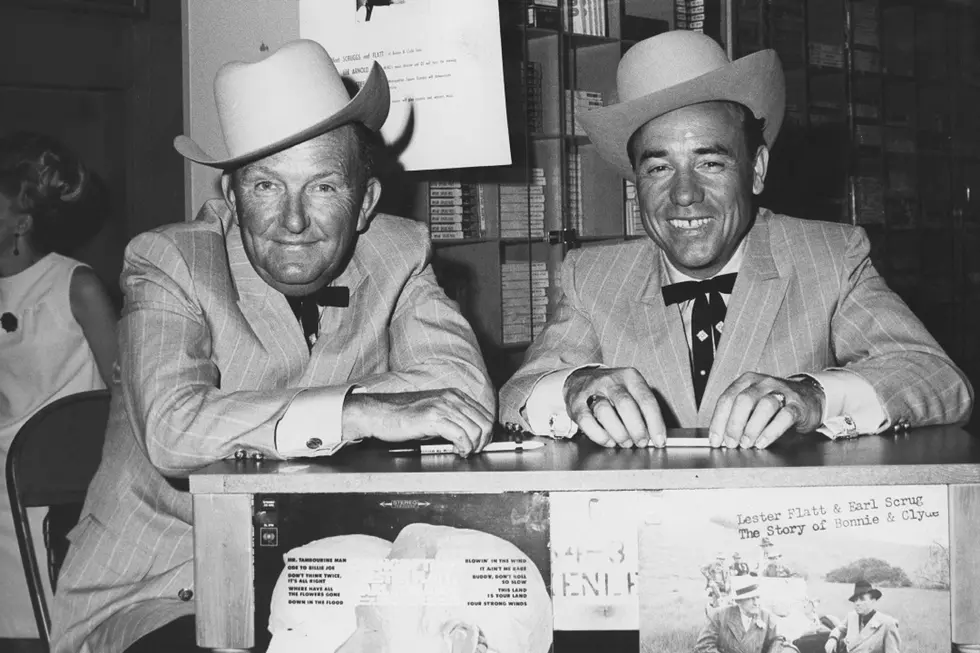
Flatt & Scruggs’ Breakup: Why the Bluegrass Icons’ Split Wasn’t All Bad News
Despite early reports teasing something far more contentious, most sources paint the March 11, 1969, split of Lester Flatt and Earl Scruggs' Foggy Mountain Boys as a case of creative differences. And while it’s hard to spin the breakup of a legendary act as a completely positive development, there are certainly reasons to be thankful that Flatt and Scruggs parted ways.
Throughout their 20-plus-year partnership, Flatt and Scruggs took former boss Bill Monroe’s creation, bluegrass music, to a global audience. Flatt’s guitar-picking and vocal delivery and Scruggs’ innovative banjo skills won over a broad radio and television following through their longstanding relationship with their sponsor, Martha White Flour. Their widespread fan base grew even larger thanks to "The Ballad of Jed Clampett," the Beverly Hillbillies theme song; it became the duo’s only chart-topping country hit in January of 1963.
The folk revival’s embrace of rural American music benefited Flatt and Scruggs as well, no later than their appearance at the 1959 Newport Folk Festival. Scruggs’ wife Louise, also the band's manager, was an early supporter of Bob Dylan, and the couple’s sons Gary, Randy and Steve came of age during Beatlemania.
Be it the influence of his family or a reflection of personal taste, Scruggs readily embraced the ways that younger practitioners of folk and popular music could further progress bluegrass. Meanwhile, Flatt -- nearly 10 years his bandmate’s elder -- balked at straying from a traditional bluegrass sound -- and his attempts at compromise sound awkward in retrospect.
Near the end of the duo’s run, Flatt and Scruggs recorded the 1968 album Nashville Airplane. It features multiple covers of Dylan, including a rendition of “Rainy Day Women #12 & 35” -- and there’s something noticeably off when Flatt deadpans “Everybody must get stoned!” The bluegrass elder statesman's talents and personality were simply better suited for preserving the old-time way than embracing newer styles. What would’ve come next: “One Toke Over the Line” going over Flatts’ head because the chorus mentions Jesus?
It wasn't as though Flatt and Scruggs' breakup ended their musical careers, either: The duo's split also resulted in two great bands. Flatt formed the Nashville Grass, a hardcore bluegrass ensemble that included a very young Marty Stuart, while the Earl Scruggs Revue provided a platform for not just the Scruggs sons but also another practitioner of progressive mountain music: Charlie Daniels. An early live appearance by the latter finds Scruggs and Daniels, of all people, performing to as many as 500,000 protesters in the nation’s capital during the Nov. 16, 1969, Moratorium to End the War in Vietnam.
Flatt and Scruggs' breakup allowed two legends to stand their ground with new bands, doubling the odds of a Flatt or Scruggs appearance during the formative years of the bluegrass festival scene. It also created new opportunities for future country legends with deep roots in bluegrass. Neither might've happened if Flatt kept singing modern folk tunes, or if Scruggs couldn't embrace long-haired agents of change.
More Memorable Country Music Breakups:
More From TheBoot









